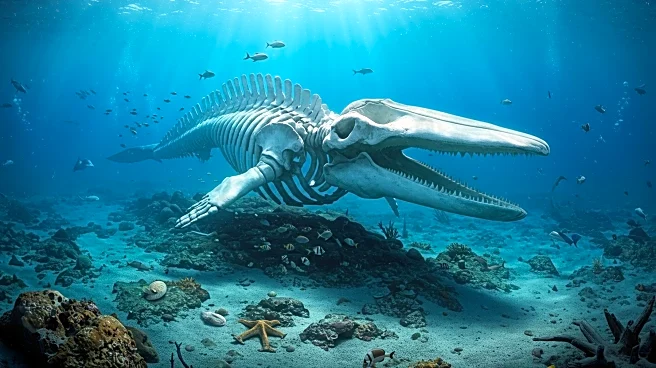What's Happening?
Researchers have uncovered the ecological significance of 'whale falls,' events where the remains of large marine creatures like whales sink to the ocean floor, creating temporary ecosystems. These whale falls provide essential nutrients to deep-sea organisms, supporting a diverse range of species in nutrient-scarce environments. The process begins with scavengers feeding on the decaying flesh, followed by decomposers like bacteria and bone-eating worms breaking down the remains. This cycle can last decades, sustaining marine life and offering insights into ocean health. The study emphasizes the importance of whale falls in understanding carbon cycling and the ocean's ability to store carbon, crucial in the context of climate change.
Why It's Important?
Whale falls play a vital role in maintaining deep-sea ecosystems, offering a unique opportunity to study largely unexplored areas of the ocean. As human activities threaten marine life through overfishing, pollution, and climate change, understanding natural processes like whale falls is crucial for conservation efforts. These events act as indicators of ocean health, providing insights into carbon cycling and the ocean's capacity to absorb and store carbon. Protecting these fragile environments is essential for sustaining biodiversity and mitigating climate change impacts.
What's Next?
Further research into whale falls could enhance understanding of deep-sea ecosystems and inform conservation strategies. Scientists may focus on the role of whale falls in carbon cycling and their potential to mitigate climate change effects. Increased awareness of these natural processes could lead to policy changes aimed at protecting marine environments from human-induced threats.
Beyond the Headlines
Whale falls highlight the interconnectedness of marine life and the importance of preserving natural processes. They serve as breeding grounds for certain species, emphasizing the need for conservation efforts that consider the entire ecosystem. Understanding whale falls can lead to broader discussions on sustainable ocean management and the ethical implications of human impact on marine life.








